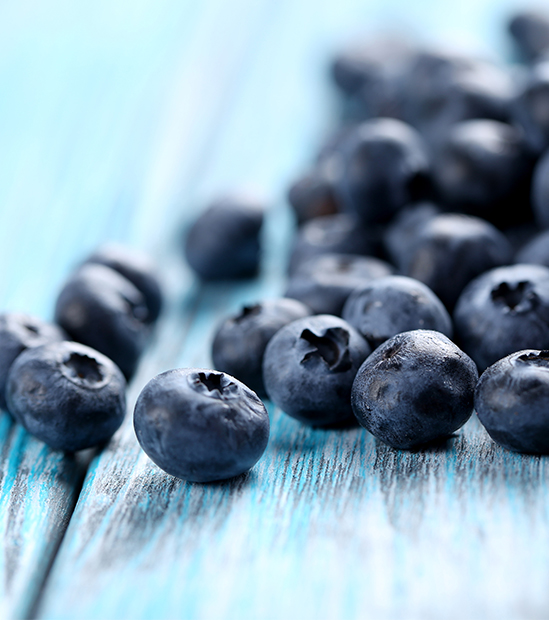Pterostilbene is a molecule that is naturally found in vegetables, nuts and fruits, particularly blueberries. Specifically, pterostilbene belongs to a class of substances called stilbenes; a class that also includes the well-known resveratrol.
While chemically related to resveratrol, pterostilbene has greater oral bioavailability and can provide many benefits.
How Pterostilbene Compares to Resveratrol
Resveratrol has been touted as an anti-aging substance that can even expand your lifespan. However, new research is finding that, while beneficial, resveratrol does have limitations.
One of these limitations is its low bioavailability. Resveratrol has a half-life of 14 minutes because it contains three hydroxyl groups, making it easier for the body to eliminate the molecule.
On a chemical level, pterostilbene and resveratrol are very similar. However, the two behave differently in the body.
Pterostilbene stays in the body for longer because it only contains one hydroxyl group.
Because the molecule has a slightly different structure, it can cross cell membranes more easily compared to resveratrol and stay in the body for longer.
How Pterostilbene Works on the Body
Like resveratrol, pterostilbene is believed to help improve longevity. That’s because pterostilbene activates three pathways associated with aging, including:
- Mammalian target of rapamycin (mTOR): Regulates metabolism, cell growth, proliferation and survival. Inhibiting this pathway may extend lifespan, as seen in animal studies.
- Sirtuins: Silent information regulators, also known as SIR or sirtuins, affect cellular pathways that regulate aging, gene expression, metabolism and DNA repair. Researchers are looking closely at how sirtuins maintain telemere length, a critical factor in lifespan.
- AMPK: Pterostilbene has been shown to activate this cellular pathway, which regulates how the body uses energy. Increased AMPK activity has been linked to a 20% increase in lifespan in preclinical research.
Along with activating these pathways, pterostilbene helps eliminate cellular waste, which negatively effects cell functions.
The Benefits of Pterostilbene
Promotes Healthy Aging
Evidence suggests that pterostilbene may help slow the aging process, and it works in a few ways.
For starters, pterostilbene is a polyphenol, and like other polyphenols, it acts as a powerful antioxidant. Antioxidants help reduce oxidative stress by neutralizing free radicals that damage cells and accelerate the aging process.
Pterostilbene can also help slow aging by:
- Boosting DNA repair
- Inhibiting enzymes that contribute to ageing-related inflammation
- Improving autophagy, a process that removes cellular waste from cells
- Activating sirtuins, proteins that boost metabolic function, repair DNA damage and increase mitochondrial biogenesis.
May Help Boost Brain Health and Prevent Alzheimer’s
Pterostilbene may help boost brain health and protect the brain by increasing cAMP-response element binding protein (CREB) and brain-derived neurotrophic factor (BDNF).
CREB and BDNF levels tend to be lower in people with Alzheimer’s disease. In this way, pterostilbene may aid in the prevention of Alzheimer’s.
Animal studies have also found that pterostilbene can improve memory and overall cognitive function.
May Help Reduce the Risk of Heart Disease
Pterostilbene may also help reduce the risk of heart disease, one of the leading causes of death in the world.
Research has found that high doses of pterostilbene can help reduce systolic and diastolic blood pressure. Even lower doses of this polyphenol can reduce systolic blood pressure.
Another animal study found that pterostilbene helped reduce inflammation and cardiac oxidative stress in diabetic rats.
May Help Regulate Blood Sugar and Manage Diabetes
Pterostilbene’s antioxidant effects may help regulate blood sugar and may even aid in the management of diabetes.
In fact, research has found that pterostilbene helped reduce blood glucose levels, increased serum insulin levels and improve weight loss.
Pterostilbene has many potential benefits, but it still has one major flaw – low bioavailability. Yes, it’s better absorbed than resveratrol. However, the body still isn’t able to fully absorb this molecule. Bioavailability remains a challenge, but researchers are working on ways to improve it. needs.





